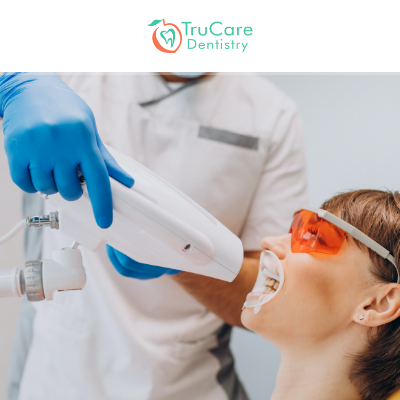Do you know that 13 to 39% of dental injuries are sports-related dental injuries? Athletes are more prone to dental injuries due to the kinds of sports they play. About 50% of children in the field of sports face dental injury before graduation. Therefore, it is important to understand the dental risks associated with sports. Any untreated or unattended dental injury may lead to more serious as well as costlier problems in the long run. Protective gear like mouthguards can be the best solution to lessen the chances of dental injuries while playing sports like football, soccer, baseball and softball, basketball, etc.
At present, only five sports have been mandated to use properly-fitted mouthguards by the National Federation of State High School Associations (NFHS). These sports include wrestling, ice hockey, field hockey, football, and lacrosse. However, several high schools and colleges support the usage of protective equipment while playing any contact sports.
Types of sports-related dental injuries
Whether on the field or off the field, the teeth can be damaged in several ways. Various high-contact sports such as basketball, hockey, football, baseball, lacrosse, boxing, wrestling, martial arts, and others have the highest percentage of dental injuries that could leave a person with severe pain and damage. However, there are higher chances of dental traumas or dental injuries in sports than in other activities. Below mentioned are some of the most common types of dental injuries related to sports:
- Cracked tooth: A cracked tooth is quite different from a chipped tooth. In the case of a chipped tooth, a corner of the tooth breaks off. This mostly doesn’t cause any pain. However, in the case of a cracked tooth, a crack usually happens near the roots. It can cause discomfort and may lead to mild to severe pain. It is vital to get immediate treatment for cracked teeth to increase the chances of saving them.
- Fractured roots: A sudden impact on the face near the jaws may cause a fractured root. It is different from the cracked tooth in that in the case of a fractured tooth, the problem starts at the root level and works its way to the visible surface of the tooth. In the beginning, the affected person may not notice the damage as the crown remains fairly healthy in most cases. However, if left untreated, a fractured root may lead to more serious damage, pain, infections and may lead to tooth loss as well. A root canal therapy, also known as endodontic, is the best solution to treat such dental injury and prevent the chances of tooth loss.
- Tooth Intrusion: Another most common sports-related dental injury is tooth intrusion. In some sports, there can be injuries that may push a tooth back into the jawbone. This can happen due to a hit in the face, a fall, or a close encounter with another player while playing a sport. Tooth intrusion can lead to serious damage to the roots (shortening of the roots), destruction of the tooth pulp, and may also cause Ankylosis (blending of the injured tooth’s root to the alveolar bone). If kept untreated for long, the problem may lead to tooth loss.
- Avulsed teeth: An avulsed tooth is another common sports-related dental injury. It is a kind of injury that completely dislocates a tooth from its socket. The best possible treatment option for avulsed teeth is dental implants. Dental implantation can help to restore the natural-looking teeth and smile in the patient.
How does a sports mouthguard help?
Mouthguards are undoubtedly the best way to protect teeth from getting injured severely while playing a sport. These are vital pieces of athletic equipment for people taking part in high-contact sports. Mouthguards are simply the protective gears that are worn over the top row of teeth while playing sports. Several sports have mandated the usage of mouthguards along with other safety guards to prevent oral injuries in players. Even kids participating in sports like mountain biking, gymnastics, skateboarding, or other physical activity must wear mouthguards to protect their teeth and gums. Even players, who have fixed dental appliances like a bridge on the lower jaw, or wearing braces, also suggested wearing mouthguards to prevent dental injuries.
When to seek emergency dental care?
People who are into sports and experience any injuries mentioned above must seek immediate dental care to prevent the problem from getting worse. It is important to explain the symptoms in detail to the dentist so that he’ll be able to provide the best possible treatment. However, if the pain and discomfort continue, make sure to see a medical professional who can provide emergency dental treatment and suggest whether a dental visit is required or not.
Conclusion:
As we all know, prevention is much better than cure. It reduces the chances of serious dental injuries to a great extent and helps to keep the teeth safe and healthy. It will be a good idea to take necessary measures to avoid or lessen the chances of injuries. Wearing sports gear like mouthguards can be very helpful for the safety of teeth and gums. However, if you or your loved one experiences a dental injury due to sports or another activity, immediately schedule an appointment with a professional dentist specializing in treating sports-related dental injuries.

